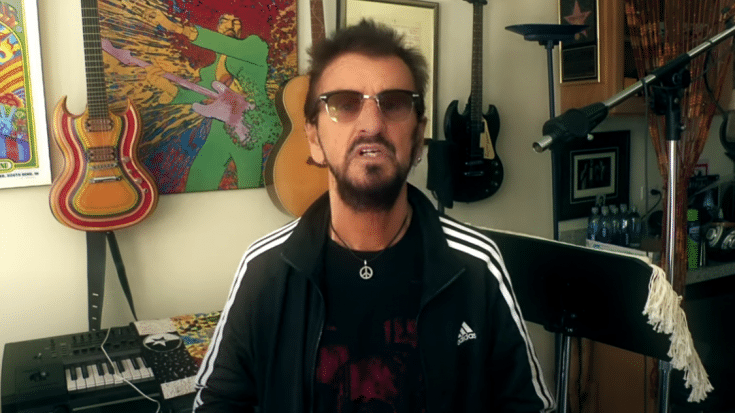Ringo Starr Attributes Beatles’ Success To Paul McCartney’s Work Ethic

via ringostarr/YouTube
More insights about The Beatles continue to emerge as the years pass. From personal anecdotes to the documentary series Get Back, the demand for new information about the Liverpool group’s ten-year existence remains insatiable.
One of the most famous aspects of The Beatles’ career is the complex relationships between the Fab Four. The band concluded on a sour note in 1970 following years of slowly disintegrating. Although the breakup can be ascribed to various factors—personal, musical, and otherwise—the differing viewpoints of the four members and their associates frequently cloud the truth. Additionally, the passage of time naturally blurs the clarity of memories.
In a recent interview, drummer Ringo Starr offered a fresh angle on The Beatles’ story, suggesting that they might not have produced as many albums—or reached such innovative heights—without Paul McCartney’s relentless work ethic. This statement challenges the long-held belief that all band members were equally committed and prolific due to their shared passion for music.
In an interview with AXS TV, Starr shared about the internal dynamics of The Beatles, asserting that McCartney was the driving force behind their prolific output. This challenges the idyllic image of the band getting along harmoniously in their early days and questions the notion that John Lennon was essential to their entire operation. Starr recalled:
“No, no, we didn’t get along. We were four guys, we had rows. It never got in the way of the music no matter how bad the row was. Once the count-in happened, we all gave our best.”
He continued:
“Suddenly, we’ve got lives and I’ve got children, and you know, the effort that we put in because we worked really hard was starting to pale a little, and we always thank Paul to this day.”
Starr emphasized McCartney’s pivotal role:
“Because of Paul, who was the workaholic of our band, we made a lot more records than John and I would’ve made. We liked to sit around a little more, and then Paul would call, ‘Alright lads,’ and we’d go in.”
These comments shed new light on the internal pressures and dynamics that shaped The Beatles’ output. McCartney’s drive and determination were key to their prolific production, while the rest of the band preferred a more relaxed approach.
On Far Out’s three-star review of Peter Jackson’s restoration of the 1970 documentary Let It Be, it states:
“In the shadow of the 2021 documentary, which used the same footage but with miles more insight and a far deeper look into their same era, the 1970 film has been usurped by its own heir, rendering this restoration rather moot and obfuscated, like an airbrushed highlights package when you’ve already seen the guts and glory of the full game.”
These revelations continue to add depth to our understanding of The Beatles, illustrating the complexities and individual contributions that defined their legacy.



















